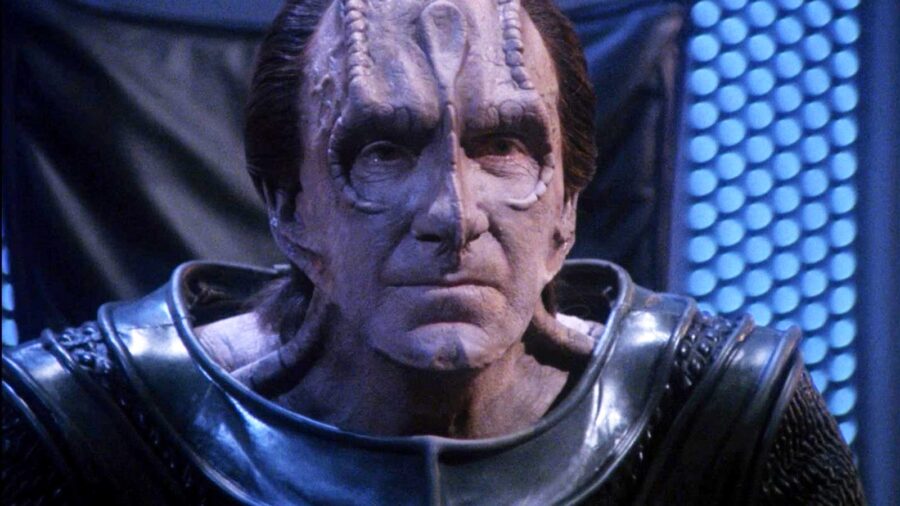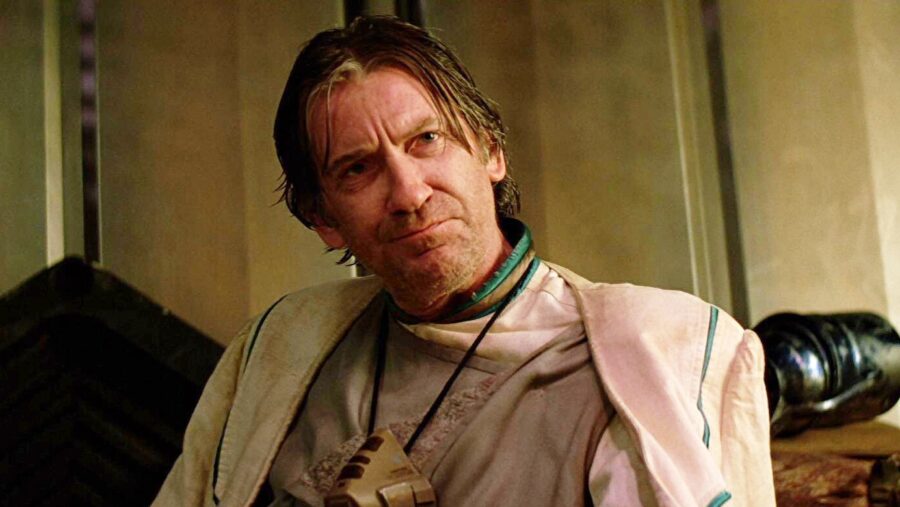The Star Trek Icon Who Was Supposed To Be Freddy Krueger

David Warner had a long and storied career on both screen and stage, including notable roles in Star Trek, but he was director Wes Craven’s first choice to play Freddy Krueger in A Nightmare on Elm Street. It was not just wishful thinking, though, as it appears the actor got as far as makeup tests before ultimately not accepting the role. Sometime back, we saw photos of Warner in the makeup tests, which were shared on X (then still known as Twitter). You can see the rare images below.
While David Warner might have made an excellent Freddy Krueger, the role went to the now-legendary Robert Englund, making it hard to imagine anyone else playing the knife-fingered, nightmare-dwelling murderer. Warner is known for several roles in science fiction and horror, including playing Ed Dillinger, Dark, and the Master Control Program in Tron. But he is also well known among Star Trek fans for his singular contributions to that franchise.
A very stark difference to see in the same year would have been David Warner as both Freddy Krueger and Bob Cratchit, a role he played in the 1984 adaptation of A Christmas Carol.
It’s impossible to know how being cast as Freddy Krueger might have changed David Warner’s career and whether or not he would have shown up as St. John Talbot in Star Trek V: The Final Frontier, but that role led to more work in the Roddenberry universe. In 1991, Warner appeared in Star Trek VI: The Undiscovered Country in one of his most notable roles as Chancellor Gorkon. The Klingon Chancellor, whose name was inspired by Mikhail Gorbachev, held out the olive branch of peace from the Klingon Empire to the Federation, though this action led to his assassination.

Might it have been strange for audiences to see a David Warner they associated with Freddy Krueger as a champion of peace in the Star Trek universe? It’s possible, though, that Warner’s career included a wide variety of roles that have been both sinister and noble. One might better ask if Star Trek audiences would accept the actor they associated with Gorkon as a villain who tortured Captain Picard, but they did.
Such a capacity to portray villainy and violence would have served David Warner as well as Freddy Krueger, lending credence to Wes Craven’s initial desire to cast the British actor in the legendary horror role.
He might not have been Freddy Krueger, but Gul Madred, a Cardassian who captured and tortured Jean-Luc Picard in the classic two-part episode “Chain of Command,” is one of the most iconic nemeses in Star Trek history. The episode, responsible for the “There are four lights” line (the emotional power of which is too often undercut by being made into memes), centers on a gripping, dramatic tête-à-tête between Warner and Patrick Stewart and is considered one of the best episodes of Star Trek: The Next Generation. Warner shines as Madred, showing utter cruelty in his torture of Picard.
Such a capacity to portray villainy and violence would have served David Warner as well as Freddy Krueger, lending credence to Wes Craven’s initial desire to cast the British actor in the legendary horror role. However, why Warner turned the role down is not known with certainty. He starred in other horror films in 1984, including The Company of Wolves and Frankenstein, wherein he portrayed Frankenstein’s monster.
(David Warner) might not have been Freddy Krueger, but Gul Madred, a Cardassian who captured and tortured Jean-Luc Picard in the classic two-part episode “Chain of Command,” is one of the most iconic nemeses in Star Trek history.
A very stark difference to see in the same year would have been David Warner as both Freddy Krueger and Bob Cratchit, a role he played in the 1984 adaptation of A Christmas Carol. Whatever his reasons for leaving the bladed gloves behind, we will always wonder what David Warner’s interpretation of Kruger would have been. Nonetheless, he left a lasting impression not only on Star Trek but on cinema as a whole, with a prolific career that ended in 2022 when he died from cancer at his home in London at the age of 80.












